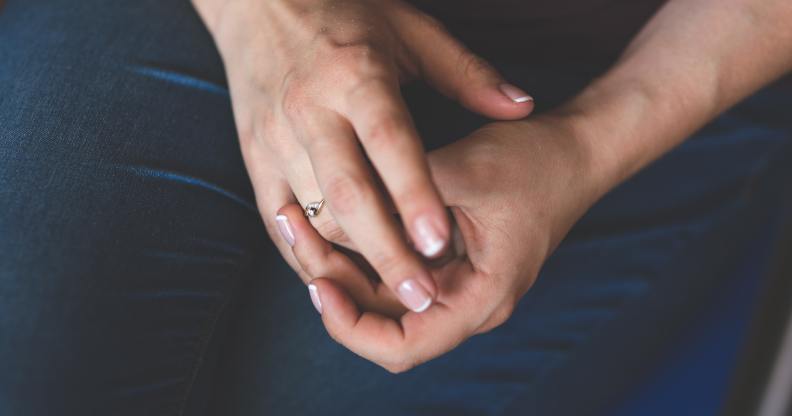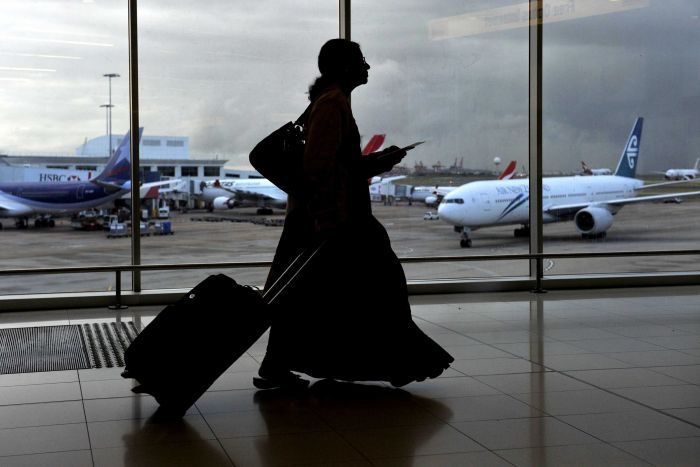LGBT people at huge risk of forced marriage, police warn

Police are patrolling airports in a bid to crack down on LGBT+ people being forced into travelling abroad for marriage. (Pexels)
The UK’s national Forced Marriage Unit has warned that LGBT+ people may be at “huge risk” of being forced into opposite-sex marriages, adding that they have not yet “scratched the surface” of the issue.
The Independent reports that a record of 1,764 potential forced marriages were investigated in 2018, but police don’t know the true figure because victims don’t realise the practice is a crime, or are not willing or able to report relatives.
93 percent of forced marriages happen abroad, and with the school summer holidays beginning this week, it’s feared that LGBT+ teens could be at particular risk as there is less chance their absence would be noted.
With this in mind, officers are being stationed at major UK airports in a bid to prevent victims being taken out of the country.

The Metropolitan Police and Border Force are targeting flights to high-risk countries (Paul Miller/AAP)
Det Sgt Trudy Gittins, who leads on forced marriage at West Midlands Police, told The Independent that the practice has carried down to the third generation of immigrant families living in the UK.
“One of the big focuses for us is the LGBT community,” she said. “It’s a real risk in some cultures to be outed or come out as gay if your family doesn’t approve.
“That can be a huge risk for forced marriage and what you also find is sham marriages, where gay people marry each other to placate the family but live their lives.”
She said some families also believe in “corrective rape” — the practice of forcing a LGBT+ person to have sex with someone of the opposite sex in an attempt to change their sexuality.
If marriages don’t go ahead there might be consequences and problems for the wider family.
Cases of forced marriage in the UK have been connected with more than 110 countries, but the nations with the highest known prevalence are Pakistan, Bangladesh, India, Somalia, Afghanistan and Romania.
Flights to these high-prevalence countries were targeted by the Metropolitan Police and Border Force, who patrolled Heathrow Airport on Tuesday (July 16) to speak to passengers and observe any suspicious activity.
The National Police Chiefs’ Council lead for forced marriage, Ivan Balhatchet, said: “Police will investigate every case fully and take all available steps to detect and prosecute those involved in this heinous crime. Forcing someone to marry is punishable by up to seven years in prison.”
Many victims are afraid to seek help
Although there have been some successful prosecutions in recent years, many victims don’t seek help as they don’t want to see their parents or relatives being arrested, or bring “shame and dishonour” to their family.
“If marriages don’t go ahead there might be consequences and problems for the wider family,” said Gittins, adding that some mothers had threatened to kill themselves to force their children to go ahead with a marriage.
“You’ve still got deeply embedded cultures in the third generation, and people are still migrating who bring these beliefs with them.”
Gittins highlighted the pressures that many LGBT+ people face from their families, citing the case of Jasvir Ginday, British-Sikh gay man who was found guilty of murdering his wife after she discovered his sexuality.
What to do if you’re being forced into a marriage
Official government advice for those being forced into marriage is to contact the Forced Marriage Unit on 020 7008 0151. If you are unable to make contact, ask a trusted friend to call on your behalf, giving details of the flight and the airports you are travelling to and from.
Call 999 if you are in immediate danger.
If a prosecution is not possible, UK courts can also impose forced marriage protection orders to prevent a non-consensual marriage from taking place. The service is free and the order can be initiated by a third party if you are unable to do so.

